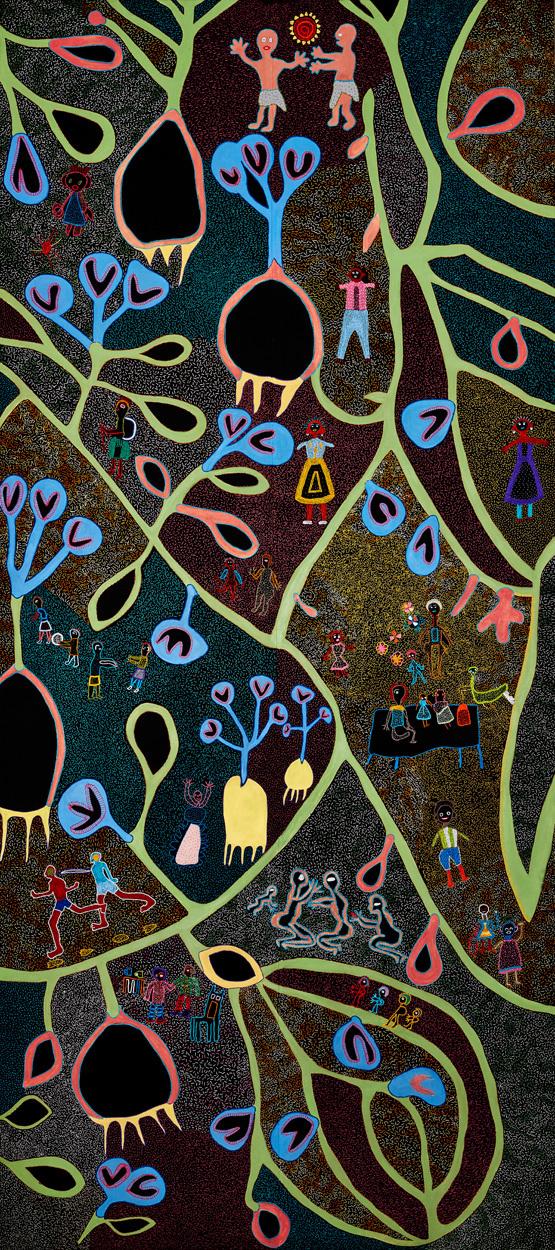
2 minute read
TOP 7 FASTESTGROWING STEM JOBS IN SOUTH AFRICA
By: Lauren Jamy Klaasen
We live in a world where technology is at the forefront of innovation and development. What may have been competitive three months ago is now a benchmark towards greater and bigger creations assisting in modernising our world.
Advertisement
Science, technology, engineering and maths (STEM) make remarkable inventions and advancements possible. These industries are at the forefront of bridging the gap between knowledge and innovation. STEM industries are expanding exceptionally fast within the country. They are acknowledged as an industry with major potential and benefactors to the economy and society.
As the nation seeks to sustain its identity in a forward-thinking, problem-solving and knowledge-based economy, several STEM fields indicate a significant increase in professionalism. We take a look at seven of the most dominant and impactful STEM jobs in South Africa.
1. Data Scientist
A data scientist accumulates data through computerised coding and statistics and uses it to make sense of the world around us. South Africa continues to embrace advanced analytics and artificial intelligence, and the demand for skilled data scientists has increased. Data science has been and continues to transform and contribute to various fields of work, such as finance and healthcare. Data scientists require a good understanding of mathematics, statistics, programming and machine learning.
2. Software engineer
A software engineer uses engineering principles combined with knowledge of computerised programmes to generate software solutions to problems faced by consumers and organisations. The day-to-day tasks of software engineers include:
• Designing,
• Building and testing software applications, and
• Working extensively with coding to resolve and debug existing code and create new code.
3. Cybersecurity analyst
As technology is used to improve our lives, it also makes us vulnerable to online attacks, which is why cybersecurity is an essential factor for many organisations. Cybersecurity is used to guard sensitive data and alleviate risk factors. Cybersecurity analysts provide protection from fraudulent hacking by providing barriers to stop unethical access from being pursued.
4. Robotics engineer
Robotics engineering is a field where machinery and software development meet to replicate human activities in autonomous machinery, commonly known as robots. The creation of robots is aimed at providing a more efficient way of delivering a service which may have existing repetitive, hazardous or unhealthy actions attached to it, such as mining and manufacturing.
5. Biomedical engineer
Technology and science are essential in medical diagnosis, treatments and advancing healthcare services. Biomedical engineers design and build innovative remedial devices, equipment and prosthetics for biological and medical development. Biomedical engineering paths are widely placed within a variety of settings and disciplines. Biomedical engineering has been acknowledged as the best healthcare career by international standards.
6. Renewable energy engineer
Renewable energy engineering is at the forefront of power resource development. It is gaining momentum in South Africa, a country rich in natural resources. This is evident in the recent funding of billions of rands into renewable energy projects. Renewable energy engineers form part of a group of researchers who focus on developing methods of providing environmentally conscious energy sources and green solutions.
7. Artificial Intelligence (AI) Specialist
Local companies are investing in the transformative field of Artificial Intelligence (AI), the revolutionised industry where science and engineering merge to produce intellectual machinery and computer programmes to better comprehend the human experience. To pursue a specialised career in AI will require a qualification in a related field such as data science, computer science, IT or statistics.






